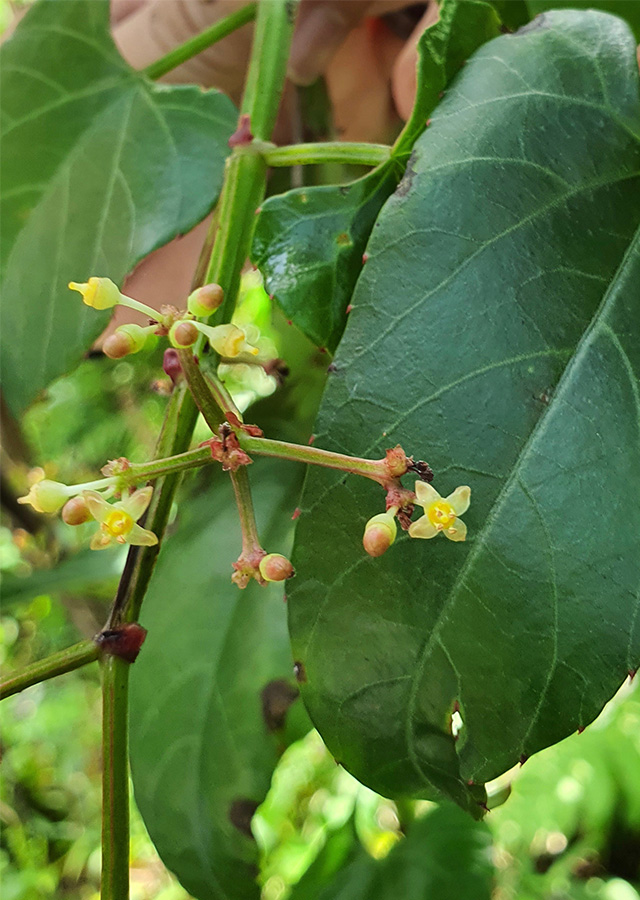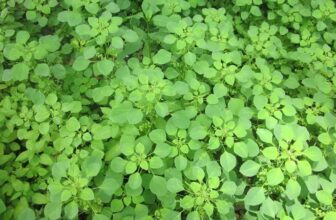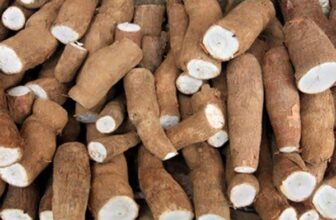
Our ancestors possessed immense knowledge of alchemy and natural resources, allowing them to create gold artifacts and structures without engaging in large-scale mining. The golden roofs of Chidambaram Natarajar Temple and Kanchipuram Temple, along with golden thrones, plates, and swords, stand as testaments to their alchemical expertise. One such alchemical herb is Cissus Repens, known as Sempirandai in Tamil.
The Alchemical Knowledge of Tamil Ancestors
Our forefathers had extensive knowledge of natural alchemy, which they used to protect and preserve metal structures. For instance, at the Vadalur Vallalar’s Nyanasabai, an iron chain has remained rust-free due to the application of alchemical herbs such as Dodonaea Viscosa (Virali). Similarly, Sempirandai is an essential alchemical herb with unique properties. Another such plant is Sigappu Neer Mulli (Marsh Barbel), known for its medicinal and alchemical benefits.
Identifying Sempirandai
Sempirandai is a climbing plant that resembles bamboo in structure, featuring distinct stem partitions. Its leaves are located at the ends of the stems and resemble grape leaves. The plant produces fruits that turn black upon ripening and are often referred to as ink fruits due to their dark pigmentation.
Medicinal Uses of Sempirandai
This plant plays a vital role in traditional medicine, particularly in treating livestock diseases such as:
- Komari Disease – A severe affliction that affects cattle.
- Bluetongue Disease – A viral disease impacting goats and sheep.
Due to its high acidic content, Sempirandai is not used individually for medicinal purposes but is included as an ingredient in herbal formulations. Unlike certain medicinal plants, it is not consumed as food but is valued for its therapeutic benefits.
The Disappearance of Alchemical Plants
Alchemical herbs like Sempirandai are becoming increasingly rare due to:
Deforestation of mountain regions
Conversion of natural landscapes into agricultural lands
These plants, once abundant in hilly areas, are now at risk of extinction. It is crucial to recognize their significance, cultivate them, and prevent their disappearance.
Lost Tamil Knowledge and Foreign Interest
Many ancient Tamil medicinal texts and alchemical knowledge have been lost or removed from their homeland. German researchers are currently studying these plants, while English archives and museums hold valuable manuscripts that describe the rich medicinal flora of Tamil Nadu. Some of these ancient texts, including the Kuranool, which provides guidance on finding underground water, were taken away and now sit unused in foreign museums.
The Need to Reclaim Our Heritage
Like the ancient Tamil sculptures that were returned after being illegally taken, our ancestral texts and knowledge on medicinal plants must also be retrieved and restored to Tamil Nadu. Understanding and preserving the legacy of alchemical herbs like Sempirandai can help future generations reconnect with their cultural heritage and benefit from nature’s gifts.
Sempirandai is a remarkable alchemical herb with immense medicinal value. It is our duty to recognize its significance, cultivate it, and spread awareness of its benefits. By reviving our traditional knowledge and reclaiming lost texts, we can ensure that future generations continue to benefit from these natural treasures. Let us cherish and protect these plants, honoring the wisdom of our ancestors.
For more information contact Karadi Organics – 100% organics online store





